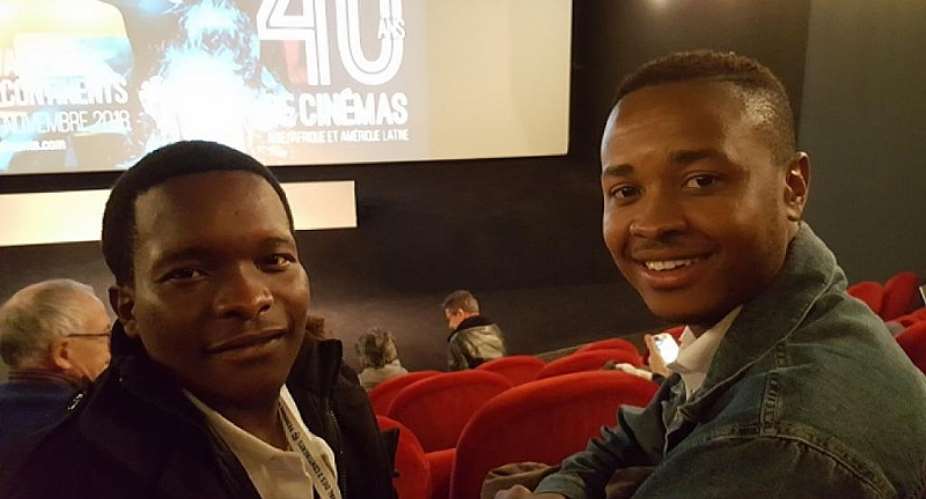Why are films out of Africa struggling for exposure in festivals in France? Of the nine films competing for awards in the 3 Continents Festival in Nantes, not one of them is African. But artistic director Jerome Baron says the festival is trying to keep the creative fire burning in Africa.
It's a fact, this year and in recent years, the festivals in France where key African directors' works were shown readily, today there are noticeably fewer films from the continent in their lineups. It's especially true for films from countries south of the Sahara.
The 3 Continents Festival this year is predominantly made up of Asian and Latin American films competing for the Golden Balloon.
The Festival's artistic director and programmer Jerome Baron explains that African countries in general are lacking cinema industry structure and could do with some specialised schools, for a start.
There has been little to no improvement in distribution or cinema halls in many countries, and producers are not encouraged to invest.
He says that his festival is trying to get film development going in North Africa, with the Agadir Festival in Morocco, and in South Africa where they work with Durban, to generate fresh momentum.
Focus on young filmmakers
What about Nollywood, the Nigeran production people talk about as being plethoric? The response in a nutshell is that not all films are festival material, though they are able to thrive on small screens. It's useful to remember that the profusion of Nigerian films has its roots in their video-cassette distribution.
The 3 Continents Festival shines some rays of light on the aspirations of filmmakers from Africa. Concretely, in its Produire au Sud network workshop, younger film-makers from the three continents are invited to take part in information sessions and meetings with film professionals and producers. The six film projects selected this year are from Bangladesh, Colombia, Indonesia, Nepal, and two African countries.
Nigerien filmmaker, Aisha Macky is trying to tie up her film about gang violence in Zinder, the name of the setting, in a bid to understand where it comes from. Orlando Mabasso is in Nantes with his producer Ciro Conrad Mondlane from Mozambique is hoping to find a way to shoot his first feature film Picture Frame, after two shorts. He says international support is essential.
As part of the 40th anniversary several films from Africa are included in other sections at this year's festival. Un homme qui crie (A Screaming Man) was directed by Mahamat-Saleh Haroun, from Chad, in 2010. Haroun is also a jury members this year. An Algerian documentary from 2015 called Le Rond Point dans ma Tête (The Roundabout in My Head) by Hassen Ferhani is set in an abattoir and focuses on the lives and loves of the people who work there. When all pulled together, it's a portrait of life in Algiers.
In the festival's section called Of Borders and Of Men, two films are Franco-African. Franco-Mauritanian Soleil O (Oh Sun) was made by Med Hondo in 1970 and attacks colonialism, some ten years after many countries in Africa became independent. The film exposes racism and condemns capitalism which, according to Hondo, underlies modern slavery. Looking at Africa from a different perspective, French film maker, Pierre Linguanotto's 2013 documentary, L'avenir est un secret (The Future is a Secret) follows three men who have arrived in France with a bag full of expectation.





 SSNIT must be managed without gov’t interference – Austin Gamey
SSNIT must be managed without gov’t interference – Austin Gamey
 Ejisu by-election could go either way between NPP and independent candidate — Gl...
Ejisu by-election could go either way between NPP and independent candidate — Gl...
 We never asked ministers, DCEs to bring NPP apparatchiks for returning officer r...
We never asked ministers, DCEs to bring NPP apparatchiks for returning officer r...
 No one denigrated the commission when you appointed NDC sympathizers during your...
No one denigrated the commission when you appointed NDC sympathizers during your...
 Used cloth dealers protests over delayed Kumasi Central Market project
Used cloth dealers protests over delayed Kumasi Central Market project
 A/R: Kwadaso onion market traders refuse to relocate to new site
A/R: Kwadaso onion market traders refuse to relocate to new site
 Dumsor: Corn mill operators at Kaneshie market face financial crisis
Dumsor: Corn mill operators at Kaneshie market face financial crisis
 Jamestown fishermen seek support over destruction of canoes by Tuesday's heavy d...
Jamestown fishermen seek support over destruction of canoes by Tuesday's heavy d...
 Election 2024: EC to commence voter registration exercise on May 7
Election 2024: EC to commence voter registration exercise on May 7
 Public schools rebranding: We’re switching to blue and white, we’re painting all...
Public schools rebranding: We’re switching to blue and white, we’re painting all...
